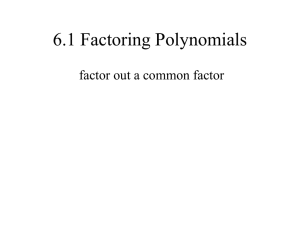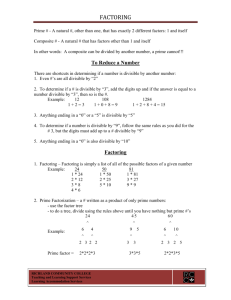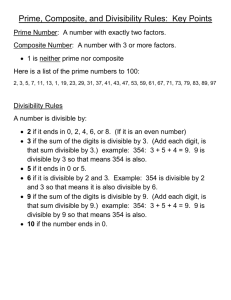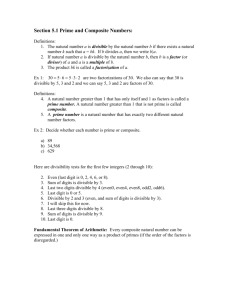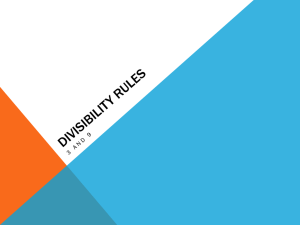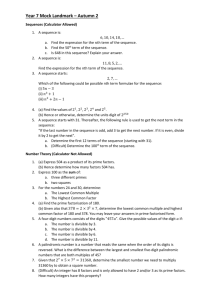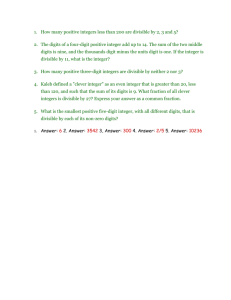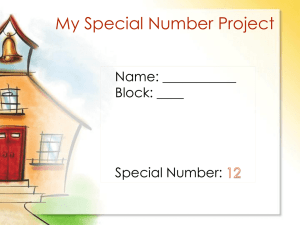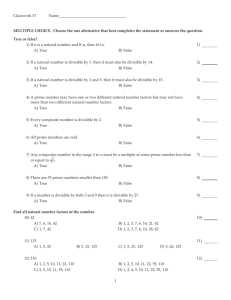6th Grade Chapter 5: Divisibility Rules, Prime, & Composite
advertisement
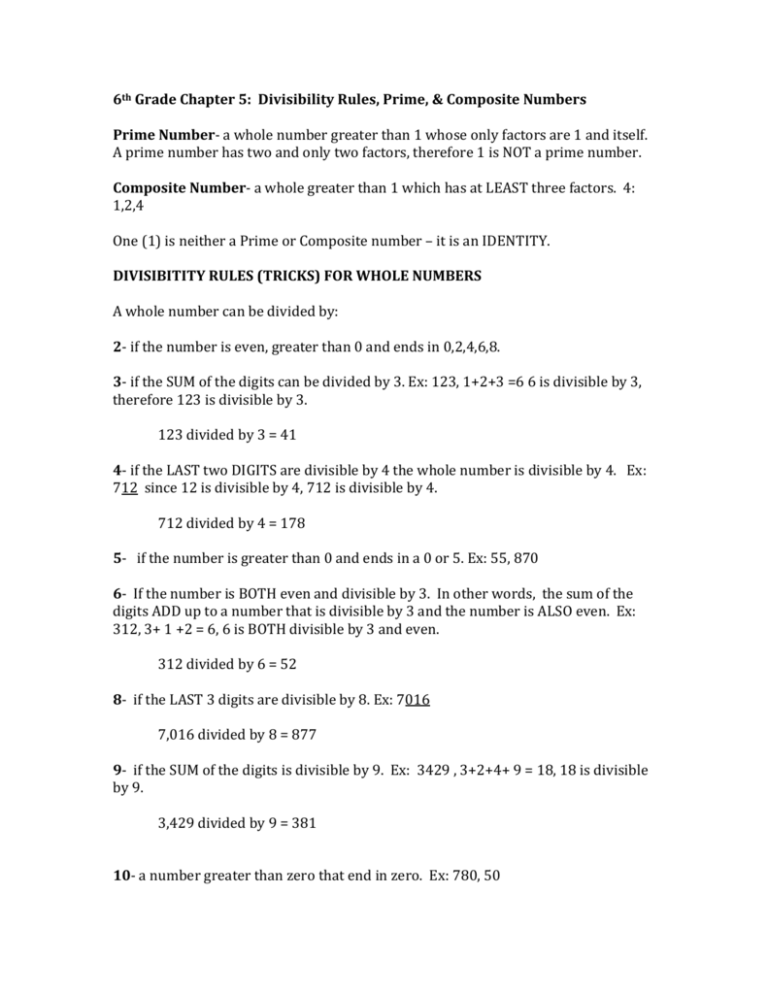
6th Grade Chapter 5: Divisibility Rules, Prime, & Composite Numbers Prime Number-­‐ a whole number greater than 1 whose only factors are 1 and itself. A prime number has two and only two factors, therefore 1 is NOT a prime number. Composite Number-­‐ a whole greater than 1 which has at LEAST three factors. 4: 1,2,4 One (1) is neither a Prime or Composite number – it is an IDENTITY. DIVISIBITITY RULES (TRICKS) FOR WHOLE NUMBERS A whole number can be divided by: 2-­‐ if the number is even, greater than 0 and ends in 0,2,4,6,8. 3-­‐ if the SUM of the digits can be divided by 3. Ex: 123, 1+2+3 =6 6 is divisible by 3, therefore 123 is divisible by 3. 123 divided by 3 = 41 4-­‐ if the LAST two DIGITS are divisible by 4 the whole number is divisible by 4. Ex: 712 since 12 is divisible by 4, 712 is divisible by 4. 712 divided by 4 = 178 5-­‐ if the number is greater than 0 and ends in a 0 or 5. Ex: 55, 870 6-­‐ If the number is BOTH even and divisible by 3. In other words, the sum of the digits ADD up to a number that is divisible by 3 and the number is ALSO even. Ex: 312, 3+ 1 +2 = 6, 6 is BOTH divisible by 3 and even. 312 divided by 6 = 52 8-­‐ if the LAST 3 digits are divisible by 8. Ex: 7016 7,016 divided by 8 = 877 9-­‐ if the SUM of the digits is divisible by 9. Ex: 3429 , 3+2+4+ 9 = 18, 18 is divisible by 9. 3,429 divided by 9 = 381 10-­‐ a number greater than zero that end in zero. Ex: 780, 50

